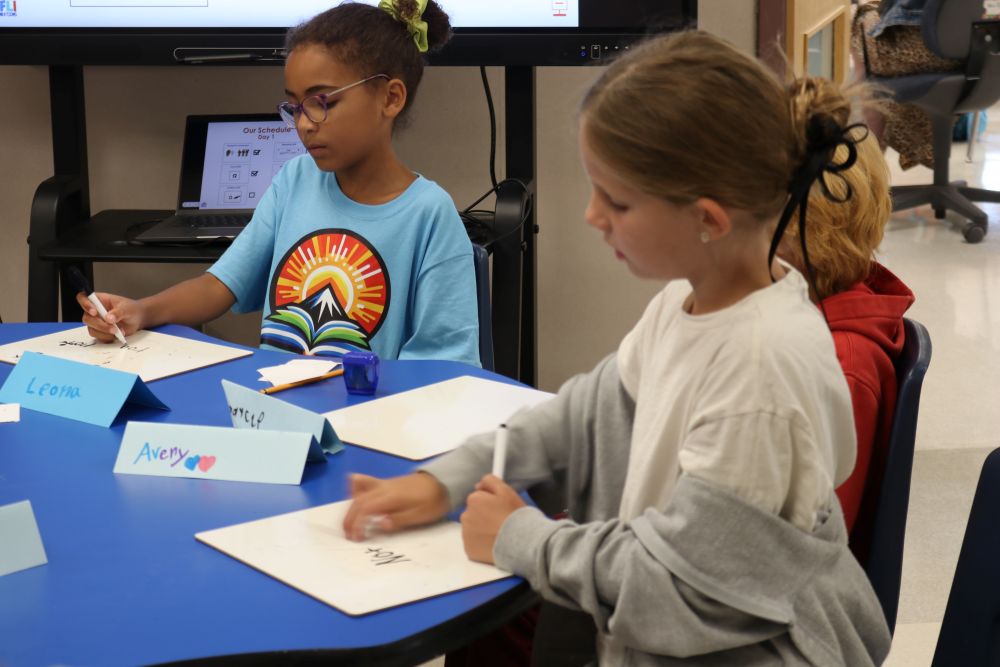The Friends of Foothills Schools Foundation (FFSF) new literacy initiative is underway.
The Literacy Playground began this week and is designed to help students who are entering Grade 3 with their reading skills.
“We know kids who aren't reading at grade level by Grade 3 are really at risk later in their schooling,” said Janet Jack, Program Coordinator. “Our goal is to grab kids who need a little more support with their literacy skills so that when they hit school in the fall, they have the confidence and the skill base to really take that next step and really shine in their reading.”
Students were chosen for the program based on report cards, reading marks, their language arts marks, writing, and teacher comments.
“We're trying to find those kids who need that little bit of extra support who are reading a little bit below grade level,” Jack said. “We’re providing a rich literacy environment, hands-on, multifaceted, based on the best research we can find on how to intervene and help these kids develop their reading skills.”
The program is at capacity, with 24 students from across the Foothills School Division.
The students begin the day in a large group and then break out into groups of eight and finish the day as a group again.
Students were placed in learning cohorts based on an initial reading assessment on their first day.
“If that wasn't a fair read, kids will move, but we are going to try to keep them in instructional cohorts that will meet their needs because each teacher is planning for those needs,” Jack said.
Throughout the program, Jack is hopeful that students will develop positive attitudes towards reading while learning specific literacy skills.
“Some kids may be working on short and long vowels, and others are going to be working on more complex structures,” Jack said.
The day begins with a skill set, then the students go to their small working groups, focusing on bringing the skills together into the reading process.
Jack explained that the goal of the program is to support students with their reading skills, while still having fun.
“We know they're not happy to give up their last couple of weeks of summer holidays,” she said. “We're going to have fun first and foremost, but we're also going to learn something while we're having fun.”
The program includes literacy activities that students can choose from, such as word searches, puppet theatre, readers' theatre, and digital recorders to hear themselves read.
“We're going to be able to really make sure that we are speaking with those kids and reinforcing the skills we're trying to teach,” Jack said.
Art and music aspects are also incorporated into the students' learning, such as comic drawing, dance, painting, and sculpting.
“There’s art, there's music, there's all kinds of connections to help them make their literacy connection,” Jack said. “We're trying to really intertwine educational programming in the morning, and our afternoons are our connections.”
In the first couple of days of the program, Jack heard from parents that their children are excited to come back the next day.
"We're trying to make sure that they arrive happy, and that they leave happy,” she said. “Not every moment of every day is going to be a gem, but we can help with developing resilience so that we can work through those tougher moments.”
According to Jack, the research is clear, and with early intervention, students have a greater chance of achieving success in school.
“If kids are not reading, it affects their math, it affects their social studies, it affects science, it affects all kinds of things,” she said. “We have to get them reading as soon as we can, and that's what we're here trying to do.”
